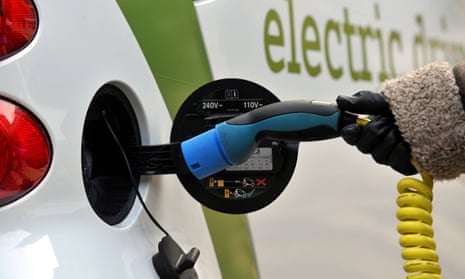It’s an essential right to be able to get from A to B. What a shame then that we can’t welcome you to the national car fleet with open arms and some hemp bunting. There are more fuel-efficient cars on the market, but those gains are evened out by a rise in car use. In the UK, transport contributes almost a quarter of GHG (greenhouse gas emissions), more than half from cars. To reach emissions targets we’ll need to put our foot to the floor (metaphorically, that is). But there are still not enough electric hybrids and plug-ins to make a real dent.
Manufacturers will no doubt tell you not to worry and pick up a new green, clean standard car instead. Indeed, the posters are impressive: the 2020 target for Europe is 95g of CO2 per km for a new car (135g of CO2 for a new van) derived through near-miraculous fuel efficiency. But when researchers kicked the tyres of the New European Driving Cycle (NEDC) figures on fuel efficiency, they found that the data displayed in showrooms was derived from testing the cars in a lab. Under these conditions the mileage was more impressive than it would be driving from the supermarket in the wind and rain. Then there’s the second problem: have you seen the cost of a brand-new car? Not many new drivers can afford them.
Meanwhile, pay-as-you-go car clubs turn newbies away. All of those I spoke to required drivers to have held a full licence for 12 months to join. This is a shame. One rental car is equivalent in terms of eco footprint to keeping 17 private cars off the road.
Eco driving (aka hypermiling) is a series of techniques, from maintaining steady speeds to gentle braking, that save you money and cut emissions. Reports such as the RAC’s Easy on the Gas show it can be highly effective. Follow the simple tips in the Energy Saving Trust’s smarter driving challenge and you could save up to a month’s worth of fuel every year, and the AA Drive Smart Challenge claims to knock 10-15% from your fuel bill. It makes me hopping mad that although there have been eco-driving questions in the theory part of the driving test since 2008 they still haven’t made it to the practical. Bringing up new drivers as eco drivers, before they develop old-timers’ ludicrous gas-guzzling habits, is a brilliant opportunity that’s being missed.
Green crush
Leeds allotment holders have a spring in their step. This isn’t the result of a bumper soft-fruit harvest (they had that, too) but because they were victorious in a historic legal battle. Using the Allotment Act 1950, the Leeds and District Allotment Gardeners Federation successfully challenged ‘unreasonable’ rent increases proposed by Leeds Council from £37 a year to £58 for 2014 and to £72 for 2016. Solicitor Alex Peebles said: ‘This case demonstrates why it is vital that local authorities meet their responsibilities when it comes to changing public services.’ A reminder to councils nationwide that allotmenteers are a hardy bunch.
Greenspeak: Seed slavery {sī:d ’sleiv ri} noun
Charged description of the conditions caused by biotech giants seeking a monopoly on seeds, according to anti-GM campaigners who fight for the diametric opposite – seed freedom.

Comments (…)
Sign in or create your Guardian account to join the discussion